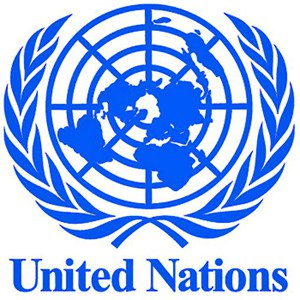
The other day, it was the turn of an external voice to join the growing hue and cry about the insecurity in Nigeria and the general breakdown of law and order under the present administration. The external call came from the United Nations (UN) directed at the Buhari administration to end insecurity and killings in the Northeast, Northwest, and other parts of the country through a combination of dialogue and strong-arm tactics.
According to UN Resident Coordinator and Humanitarian Coordinator in Nigeria, Edward Kallon, who met President Muhammadu Buhari at Aso Rock in the nation’s capital, “the conflict is still ongoing: it’s not over. But today again, I told Mr. President that in addition to the military effort, that there is a need to complement that with enhanced dialogue and political approach process in search of durable solutions to the crisis…So, we think various approaches have to be used to find a solution. But when you talk about conflicts in Nigeria, we are talking about three typologies. There is no one-size-fits-all. You have identity-based conflicts, resource-based and power-based conflicts. Each of those typologies requires different approaches and solutions that are the complex axis we are dealing with.”
The UN diplomat also adverted to the effect of the insecurity, noticeable in the huge population of the Internally Displaced Persons (IDPs). The insecurity in Nigeria has birthed an estimated 1.2 million IDPs and over 293,000 are refugees in Niger, Chad, and Cameroon who need to be supported to live normal lives.
It is significant enough that the fragility of the Nigerian state and the expanding sphere of influence of non-state actors, namely, Boko Haram in the northeast, banditry in the northwest and the kidnapping and killings by Fulani herdsmen is so widespread that it has now drawn the attention of the foremost international organisation, the UN.
Kallon’s prescription was analytical and insightful. He pointed to the structural roots of conflict, which dynamic must be addressed. The elements: the political, economic and social context. He underscores the connectivity of these elements and their centrality to the understanding of issues of criminality, banditry, and terrorism. These he noted are critical to the resolution of the conflict in the country.
The truth is that all is not well in Nigeria, the composition of state institutions and application of primordial sentiments and insincerity of the incumbent state actors, are by far the obstacle to the restoration of peace and stability in Nigeria. Since the Yar’Adua administration, the war against Boko Haram in the northeast has been undermined by politics. Under the Jonathan administration who took decisive military action was blackmailed as being out to decimate the northern population and even reports were filed by Amnesty International to the extent of undermining the government’s effort to procure arms from the United States.
Militarily, the handling of the military by their American trainers on alien doctrines has also undermined the capability of the Nigerian military to overcome the situation. Because the insurgents are Nigerians, there have been reported activities of fifth columnists within the security complex undermining actionable intelligence in the war against the insurgents.
Besides, despite huge financial outlay, the military is still ill-equipped to face the firepower of the insurgents. There is also the prevailing perception that the war itself has become an industry where sundry accumulators are reaping off state resources. All these played into primordialism manifest in the composition of the nation’s security forces whose leadership is dominated by a section of the country. This breeds distrust and undermines the fighting spirit of the forces.
It is important to reiterate the point that the service chiefs have failed woefully in the war against the insurgents. On their watch, the net of insecurity enveloped the northwest. Given this reality, there has been an incessant call on the Buhari administration to sack the service chiefs and the administration has remained recalcitrant, in this regard.
Today, it is clear that the government has no winning formula to address the situation apart from the rhetoric of having ‘‘technically defeated’’ the insurgents. This can be told to the marines. It is public knowledge that Boko Haram has been on the offensive against the Nigerian military and other members of the multinational task force, especially Chad in the last couple of months.
While not adverse to the UN’s prescription of an admixture of dialogue and force, in other words, carrot and stick approach, we believe to win the war against the insurgents and general insecurity in the country, the government must be sincere and purge itself of its primordial inclinations demonstrable in its nonchalant attitude towards the deadly herdsmen. Besides, the refusal to change the military leadership since 2017 has been curious despite suggestions from even the parliament. Since the Nigerian leader isn’t looking in this direction, Nigeria is bound to endure in the prevailing nightmare of insecurity.
END

Be the first to comment